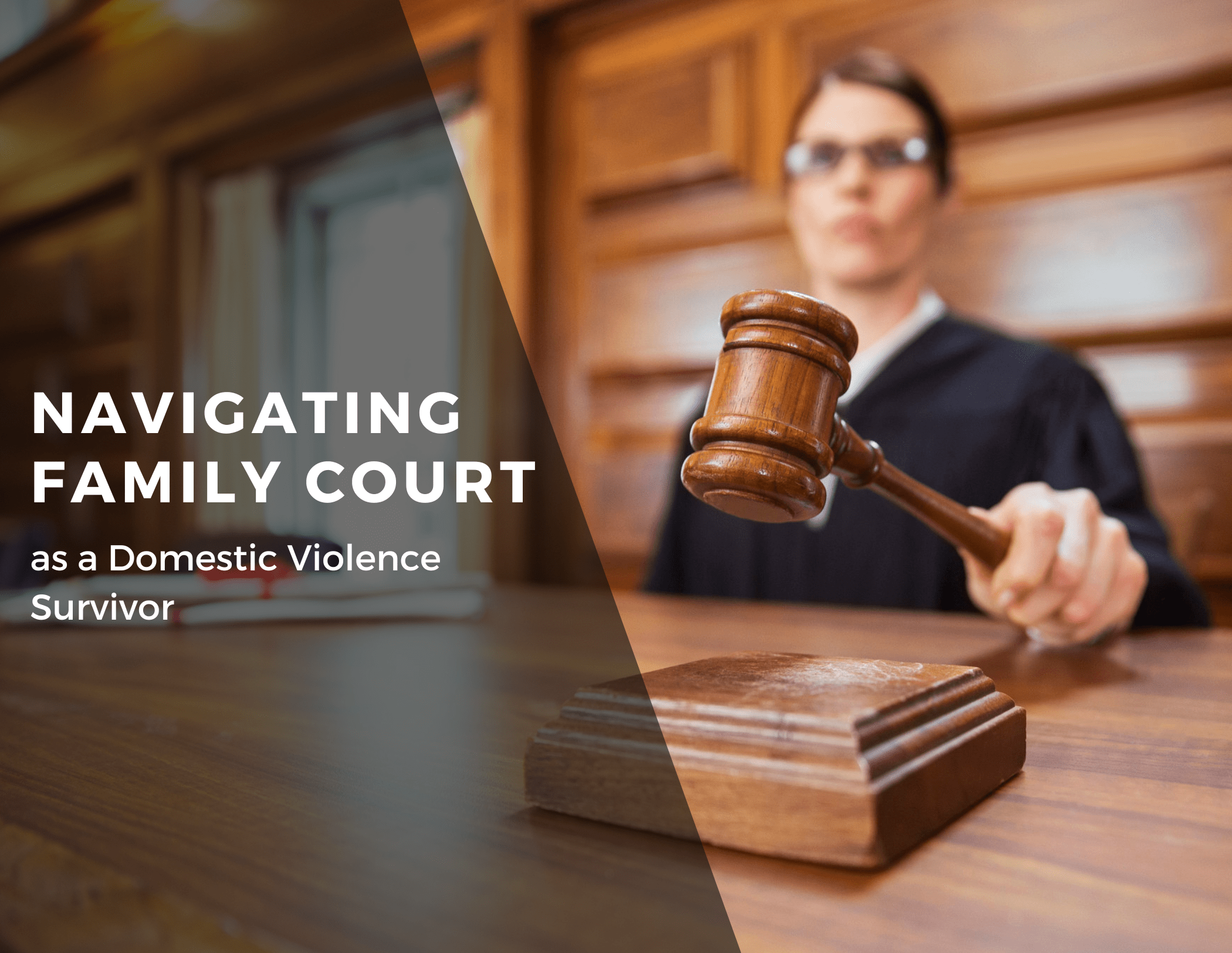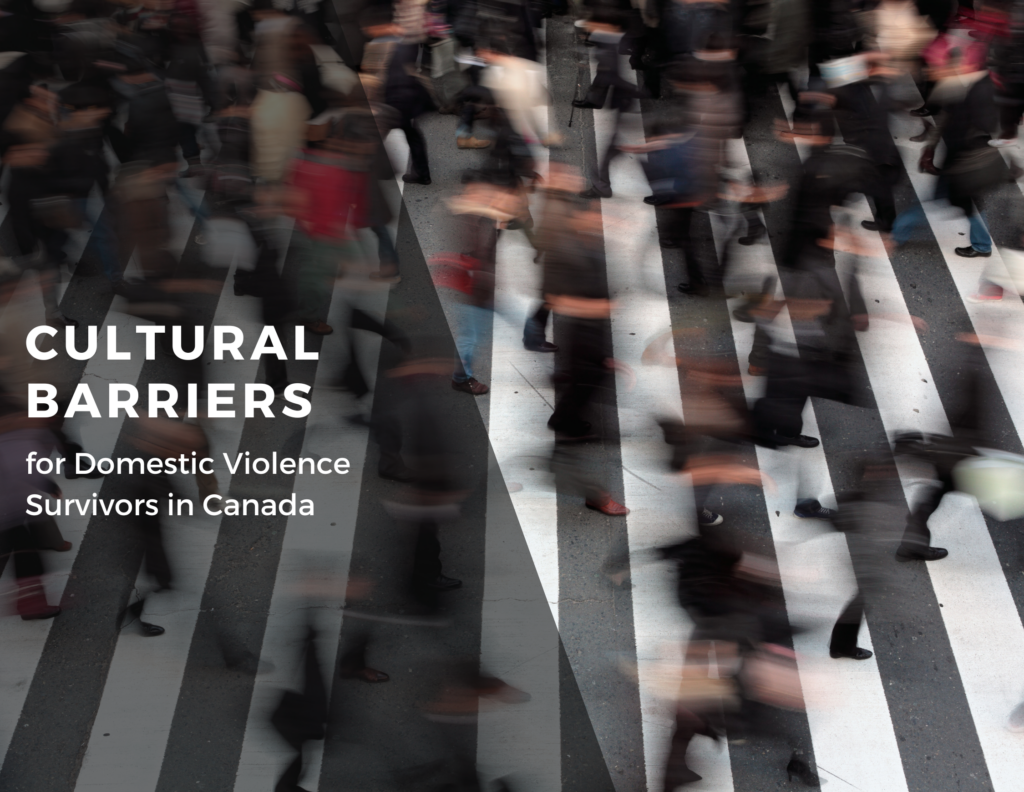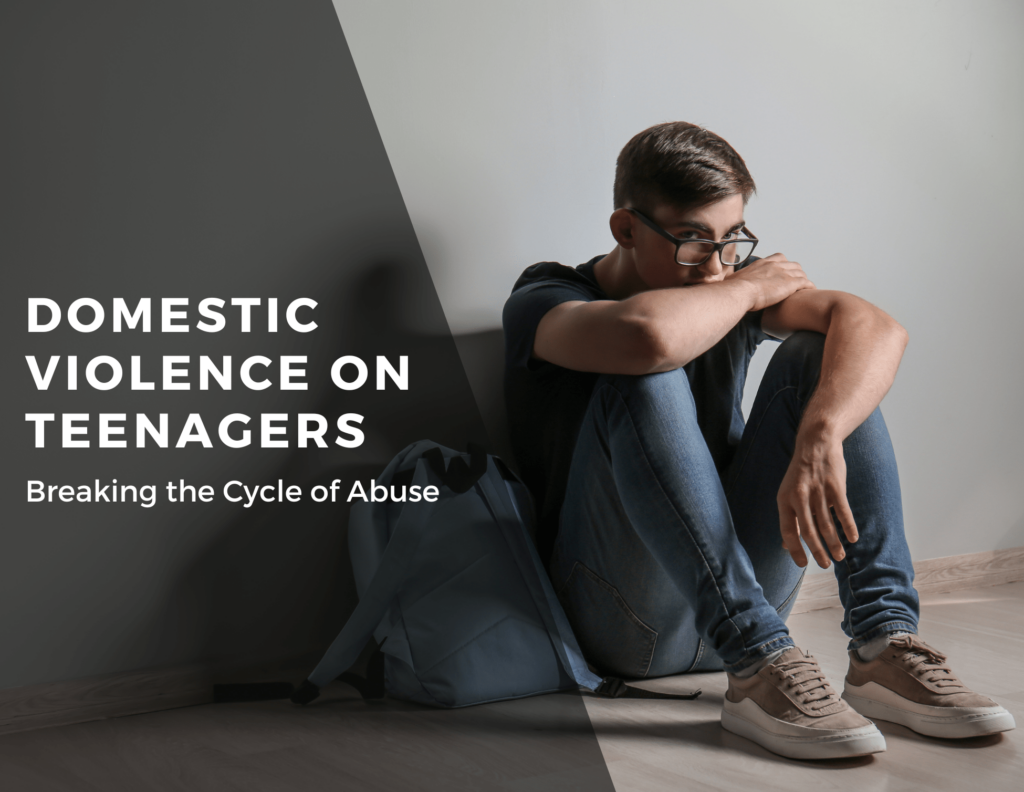Navigating Family Court as a Domestic Violence Survivor

Navigating Family Court as a Domestic Violence Survivor in Alberta
Navigating the family court as a survivor of domestic violence can be daunting. In Alberta, there are specific laws and resources to help you through this challenging process. This comprehensive guide provides an in-depth overview of the steps involved in family court, with a focus on ensuring your safety and well-being.
We are not legal experts, but we are domestic violence experts. If you have any questions about any of these legal terms, please contact your family lawyer or any of the publicly available legal supports.
Understanding Family Law in Alberta
In Alberta, two main pieces of legislation govern family law: the Divorce Act and the Family Law Act.
The Divorce Act
Applies to married couples seeking a divorce. It includes provisions on family violence, defining it broadly to cover physical, emotional, and financial abuse, as well as coercive and controlling behaviour. Understanding the scope of family violence as defined by the Divorce Act is crucial for survivors seeking legal recourse.
Federal Jurisdiction and Scope
- The Divorce Act is a federal statute that applies uniformly across Canada. It governs divorce proceedings and related issues, including child custody, access, and support.
- One of the significant amendments made to the Divorce Act in March 2021 was the explicit recognition of family violence as a critical factor in determining the best interests of the child.
Family Violence Definition
- The 2021 amendments provide a comprehensive definition of family violence, which includes physical abuse, psychological abuse, financial abuse, and neglect. This definition also considers the child’s exposure to such behavior.
- The legislation acknowledges that family violence can directly or indirectly affect children, and such exposure must be factored into custody and access decisions.
Best Interests of the Child
- The amended Divorce Act emphasizes that the child’s best interests are the paramount consideration in custody and access disputes. Factors to consider include the child’s physical, emotional, and psychological safety, security, and well-being.
- Courts are mandated to consider any family violence evidence when making decisions about parenting arrangements, ensuring that the child’s exposure to violence is minimized.
Implications for Domestic Violence Survivors
- The amendments aim to provide better protection for domestic violence survivors by ensuring that their safety and the safety of their children are prioritized.
- Survivors can present evidence of family violence in court, which can influence decisions regarding custody and access, potentially leading to arrangements that better protect the survivors and their children.
The Family Law Act
Applies to non-married couples or those not seeking a divorce. This Act focuses more narrowly on physical harm and threats, excluding emotional or financial abuse and coercive control. While this Act offers some protection, survivors must navigate its limitations and seek additional support where needed.
Provincial Jurisdiction and Scope
- The Family Law Act is a provincial statute specific to Alberta that governs matters such as child custody, access, and support for unmarried couples and other family law issues that do not fall under the Divorce Act.
- This Act is essential for individuals who are not seeking a divorce but still require legal resolutions regarding family matters.
Family Violence Definition
- The Family Law Act defines family violence more narrowly compared to the Divorce Act. It primarily focuses on physical harm or the threat of physical harm, which can limit the recognition of other forms of abuse, such as emotional or financial abuse.
- This narrower definition can create challenges for survivors whose experiences of violence do not involve physical harm but include other forms of abuse that can be equally damaging.
Protection Orders
- The Family Law Act allows for the issuance of Emergency Protection Orders (EPOs) and Queen’s Bench Protection Orders to provide immediate protection to individuals experiencing family violence.
- These orders can include provisions such as no-contact orders, exclusive possession of the family home, and temporary custody arrangements.

Steps to Take Before Entering Family Court
Seek Immediate Safety
If you are in immediate danger, call 911. Your safety is paramount. Contact our helpline at 780-594-3353 or any of our resources. We can help you if you are a victim of domestic violence in northern Alberta. We are partners of organizations like the Alberta Council of Women’s Shelters and Women’s Shelters Canada who offer emergency accommodation and assistance if we are not able to.
Gather Documentation
Collect evidence of abuse, including photos, medical records, and any police reports. Documentation strengthens your case and provides tangible evidence of the abuse you have experienced.
Document instances of violence and their impact on you and your children. This information will be vital when presenting your case in court.
Consult with a Family Lawyer
Seek legal advice from a lawyer experienced in domestic violence cases. They can help you understand your rights, assess your legal options, and prepare for court proceedings.
Legal Aid Alberta provides assistance to individuals who cannot afford a lawyer, ensuring access to legal representation for all survivors.
Navigating Custody Battles and Divorce Proceedings
Filing for Protection Orders
Apply for an Emergency Protection Order (EPO) if you are in immediate danger. EPOs provide short-term protection and can be issued without the abuser being present.
For longer-term protection, you can apply for a Queen’s Bench Protection Order. These orders offer more extensive protection and can include provisions for child custody and access arrangements.
Preparing for Custody and Access Decisions
The court’s primary concern is the best interests of the child. Family violence is a significant factor in these decisions, and survivors must provide evidence of abuse and its impact on their ability to co-parent safely.
Alberta’s Parenting After Separation course is mandatory for all parents involved in custody disputes. This course helps parents understand their rights and responsibilities and provides strategies for minimizing conflict.
Addressing Financial Support
Seek child support and spousal support if needed. The court considers family violence when determining support amounts, and recognizing the financial impact of abuse on survivors and their children.
Ensure you have financial documentation ready, including income statements and expenses related to the children. Financial transparency is essential for fair and equitable support arrangements.

Ensuring Your Safety and Well-Being
Courtroom Safety Measures
Inform the court if you fear for your safety during proceedings. The court can implement safety measures such as separate waiting rooms or video conferencing to minimize the risk of further harm.
Request that your address and contact information be kept confidential to protect your privacy from the abuser.
Legal Representation and Support
If your abuser is self-representing, notify the court about potential harassment or intimidation. The court can limit direct cross-examination to protect you from further trauma.
Seek support from domestic violence advocates who can accompany you to court, provide emotional support, and connect you with additional resources.
Post-Court Proceedings
Stay vigilant about enforcement of court orders, especially regarding protection orders and custody arrangements. Report any breaches immediately to the police and your lawyer to ensure your continued safety.
Continue accessing support services for you and your children to address the emotional impact of the legal process and ongoing safety concerns. Counselling and support groups can provide invaluable assistance during this challenging time.
Resources and Support Systems
Shelters and Crisis Services
Alberta shelters offer safe accommodation and comprehensive support services for survivors of domestic violence. Reach out to the Alberta Council of Women’s Shelters for assistance and information about available resources.
Counselling and Support Groups
Counseling services can help you and your children heal from the trauma of domestic violence and navigate the challenges of the legal process. Many non-profit organizations offer free or low-cost counselling services tailored to survivors’ needs.
Legal Aid and Pro Bono Services
Legal Aid Alberta provides legal assistance for survivors who qualify financially, ensuring access to justice for all. Additionally, some organizations offer pro bono legal services specifically for survivors of domestic violence, providing much-needed support during this difficult time.
Legislative Considerations and Reforms
Advocacy groups are pushing for legislative reforms in Alberta’s family law to better protect survivors of domestic violence. Key areas of focus include:
Broadening the definition of family violence in the Family Law Act to include emotional and financial abuse, aligning it with the provisions of the Divorce Act.
Improving communication and information sharing between criminal, family, and child protection courts to ensure a coordinated response to domestic violence cases.
Enhancing training for legal professionals on the dynamics of domestic violence to ensure sensitive handling of cases and appropriate support for survivors throughout the legal process.
Conclusion
Navigating the family court system as a domestic violence survivor requires careful planning, support, and access to resources. By understanding the laws, seeking legal and emotional support, and prioritizing your safety, you can better manage the challenges of custody battles and divorce proceedings. Remember, you are not alone—many resources are available in Alberta to support you through this journey towards safety, healing, and empowerment.

Share this:
Related Articles
Cultural Barriers for Domestic Violence Survivors
Understanding Cultural Barriers for Domestic Violence Survivors in Canada Cultural barriers for domestic violence survivors are a serious issue affecting many individuals in Canada. While…
The Effect of Domestic Violence on Teenagers
Understanding the Impact of Domestic Violence on Teenagers Domestic violence is a serious issue that affects millions of people worldwide, including teenagers. Adolescence is already…


